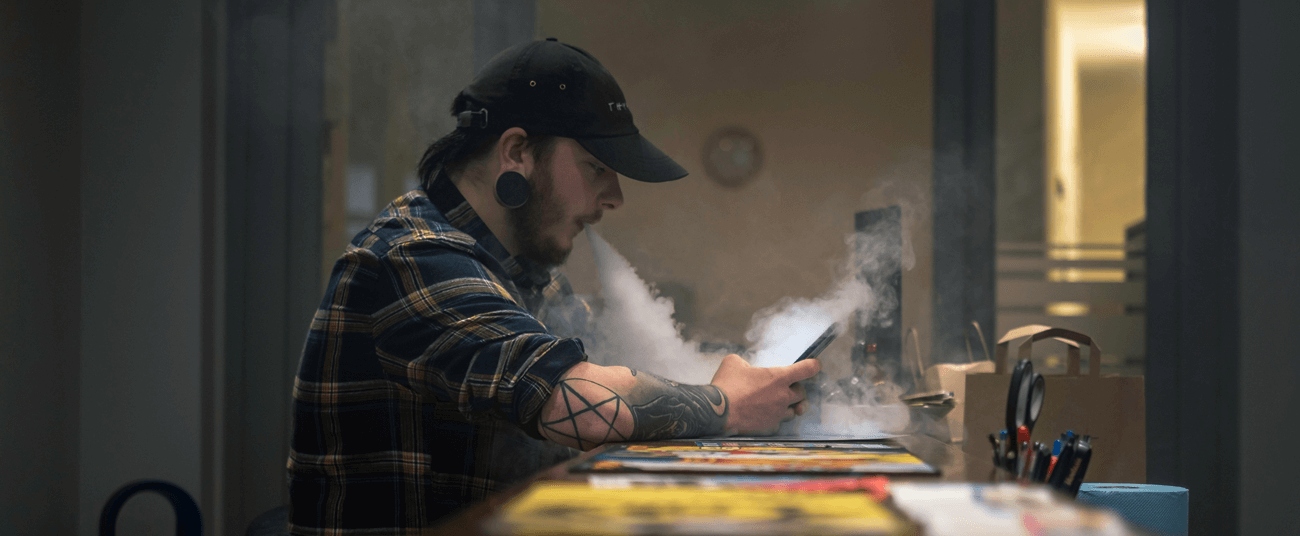A new study from London South Bank University has found that a combination of e-cigarettes, NRT and behavioural support achieved a 58% quit rate among smokers after 4 weeks. The study analysed how The Quit Clinic in Birmingham has utilised e-cigarettes and social media advertising to support local smokers in a quit attempt during the COVID 19 Pandemic.
About the study
This study considers data from 1488 patients, between the ages of 18 – 80. Patients were given an NRT and behavioural support, but also offered a disposable e-cigarette to assist in their quit attempt. 84% of the clients opted to use an e-cigarette in conjunction with an NRT, and over the course of the 12-week program, 55 of those who initially opted for NRT only, chose to add an e-cigarette.
Four weeks into the program, 843 patients had remained smoke free, and by the end of the 12-week program, 445 of these people remained smoke free. Of those who had quit by the end of the program, 89% were using a combination of e-cigarette and NRT compared to just 11% using an NRT only.
The Quit Clinic chose to offer the Mylo GO disposable device, available in a choice of 4 flavours and with an 18 mg/ml nicotine strength. This device was chosen as it does not require the purchase of additional coils or e-liquids and is a simple and user-friendly option that could be easily explained to clients during phone appointments which were often needed during this time due to the national lockdowns.
The author, Dr Kirstie Soar explains;
“The Government’s ambition for England is to be Smokefree by 2030. However, to reach this target the UK needs to take ‘bold action’ to reduce smoking by two thirds in the next 10 years. This target can only be achieved by motivating smokers to make a quit attempt, using the most effective quitting aids and maximising the proportion of successful quits per quit attempt.”
The results of this study suggest that the use of an e-cigarette in conjunction with an NRT and behavioural therapy can greatly increase the chances of a successful quit attempt. Dr Soar ends the research with suggestions for policy makers, suggesting that wider implementation of e-cigarettes in stop smoking services should be actioned. Offering simple e-cigarettes like disposable devices is a cost effective and easy to explain option, making them accessible for all appropriate age groups and abilities.
The Quit Clinic
The Quit Clinic recruited patients for their services primarily across social media platforms, this included advertising the clinic and services, sharing Stoptober and No Smoking Day campaigns, and relevant NHS health articles. In line with regulatory restrictions, the offer of an e-cigarette was not mentioned in any of the advertising.
The Quit Clinic has also shown that advertising through social media is a really effective way to recruit smokers, especially during a time when we are spending more time at home. With 91% of patients reporting that they found the clinic through this advertising, it suggests that there may be many smokers who want to make a quit attempt, but just need a little extra push to reach out and access support.
Dr Soar suggests that utilising the wide-reaching advertising capabilities of social media to recruit smokers should be a standard practice for all stop smoking services, making the services more accessible to all.
If you are thinking about making a quit attempt and want to include an e-cigarette as an aid, you can pick up a refillable or prefilled vape kit now at a local Evapo store, or on our website, where we offer a wide range of solutions.


























